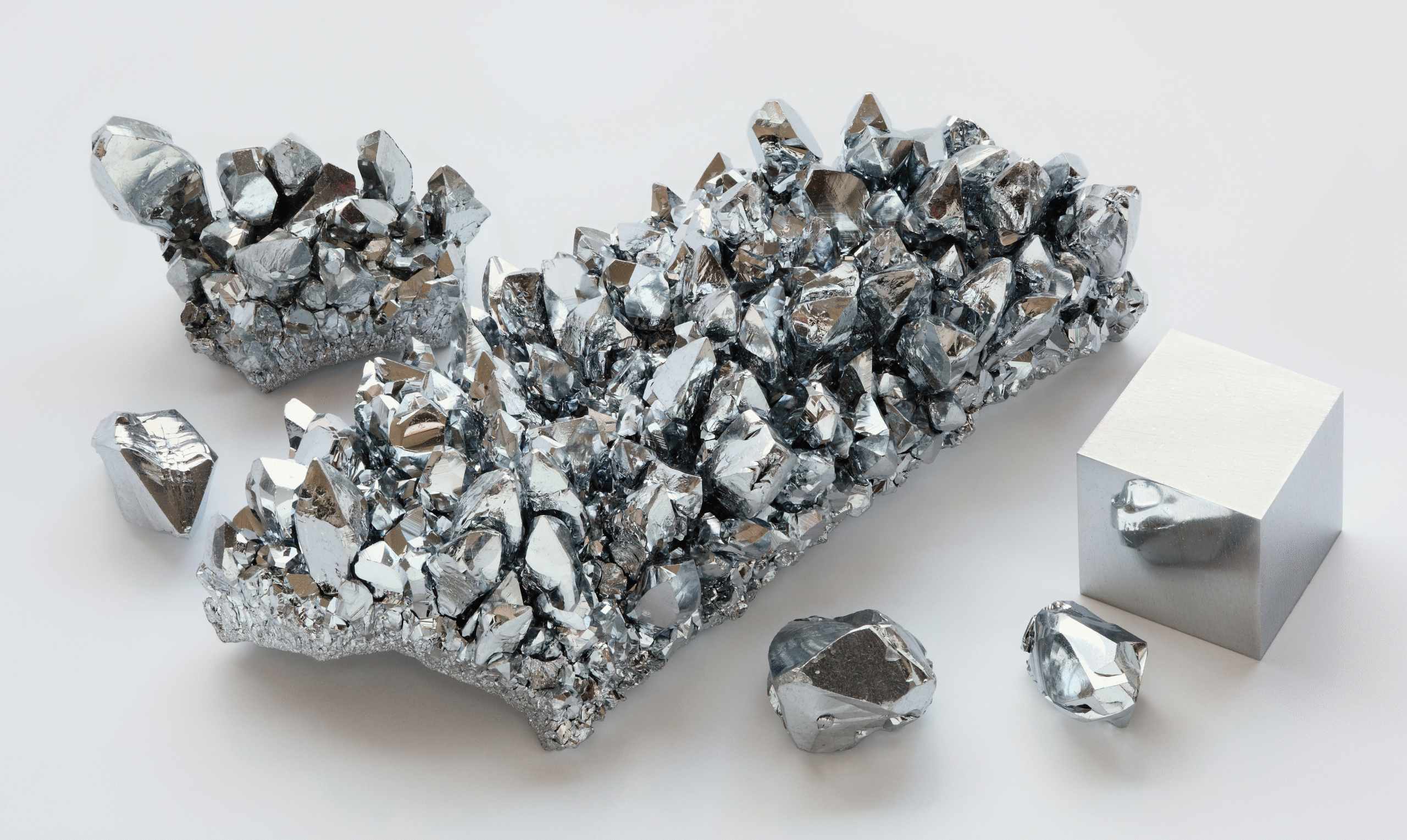What is Chromium?
Chromium is an essential mineral considered a trace element, meaning the body needs it in very small amounts. It is an important part of a balanced diet and plays a crucial role in several vital processes in the human body. Its chemical symbol is Cr, and it is one of the transition metals found in group six of the periodic table.
What minerals does Chromium contain?
Chromium is not a compound mineral containing other minerals; it is a pure element naturally found in very small quantities. It can be extracted from some minerals such as chromite (FeCr2O4), which is the primary ore used for industrial chromium production.
However, dietary chromium is bound to other elements in the body to form salts and compounds that can be absorbed and utilized. Chromium exists mainly in the trivalent form (Cr+3), which is the beneficial dietary form for the body, while other forms like hexavalent chromium (Cr+6) are toxic and not suitable for human use.
Benefits of Chromium
Chromium plays an important role in many vital functions in the body, including:
- Regulating blood sugar levels
Chromium helps enhance the effectiveness of insulin, the hormone responsible for regulating blood glucose levels. Therefore, chromium is essential for maintaining stable blood sugar levels, making it particularly beneficial for people with diabetes or prediabetes. - Improving insulin sensitivity
Due to its role in enhancing insulin effectiveness, chromium may improve insulin sensitivity, which is important for preventing metabolic disorders like metabolic syndrome. - Supporting heart health
Some studies show that chromium may help reduce LDL (bad cholesterol) levels and increase HDL (good cholesterol), thus lowering the risk of cardiovascular diseases. - Contributing to weight loss
Chromium is believed to help control appetite and reduce cravings for sugars and carbohydrates, making it useful in weight loss programs. - Boosting energy
By playing a role in carbohydrate metabolism, chromium helps improve energy metabolism by aiding the conversion of glucose into energy used by the cells. - Supporting muscle building
Many chromium supplements are used in sports for muscle building, as it is believed to help increase muscle mass and improve athletic performance.
Where can we get Chromium?
Chromium can be obtained from several dietary sources, including:
- Foods rich in chromium
- Red meats such as beef and lamb.
- Poultry like chicken and turkey.
- Fish such as salmon and tuna.
- Whole grains like whole wheat and oats.
- Broccoli, which is one of the best vegetables rich in chromium.
- Potatoes (boiled or baked).
- Garlic, which contains a high amount of chromium.
- Eggs, especially the yolk.
- Nuts such as walnuts, almonds, and hazelnuts.
- Dietary supplements
If the body’s chromium needs are not met through food, chromium supplements can be taken, available in capsules or tablets. It is important to consult a doctor before starting any supplement to determine the appropriate dosage.
What distinguishes Chromium from other minerals?
Chromium is a rare mineral in the diet but is very important for several reasons:
- Its role in insulin
Its close relationship with insulin effectiveness makes it unique compared to other minerals that do not directly affect blood sugar regulation. - Small required amounts
The body only needs very small amounts of chromium, but deficiency can lead to serious health issues, including metabolic disorders and increased risk of diabetes. - Effectiveness in enhancing physical performance
Chromium is used by athletes to improve sports performance and muscle building, and it is believed to help speed muscle recovery after exercise.
Therapeutic Uses of Chromium
There are several proposed therapeutic uses for chromium, including:
- Managing diabetes
One of the most important therapeutic uses is managing blood sugar levels, especially in people with type 2 diabetes. Some studies suggest chromium supplements may improve insulin response and reduce resistance. - Supporting heart health
Chromium may help reduce the risk of heart disease by improving cholesterol levels and blood circulation. - Weight control
Some studies have shown that chromium supplementation may be helpful for those trying to lose weight by reducing strong food cravings and improving carbohydrate metabolism.
How to use Chromium?
- Natural dietary sources
It is recommended to obtain chromium from natural foods in the daily diet to ensure the body receives the required amount without needing supplements. - Dietary supplements
If you have a chromium deficiency, a doctor may recommend supplements containing trivalent chromium, which is the safest and most effective form. The usual recommended daily dose ranges from 20 to 45 micrograms, but higher doses may be advised for diabetes or obesity cases. - Topical applications
Chromium does not have widespread topical uses in traditional medicine but may be found as an additive in some skincare products.
Side Effects and Warnings
- Overdose: Taking large amounts of chromium may cause kidney and liver problems.
- Drug interactions: Chromium can interact with certain medications like diabetes drugs, so it’s important to consult a doctor before taking supplements.
- Allergies: Although rare, some people may be allergic to chromium, especially when exposed to it via skin contact in industrial or jewelry settings.
Conclusion
Chromium is a rare but essential mineral for maintaining body health. It plays a vital role in regulating blood sugar levels, improving insulin sensitivity, supporting heart health, and contributing to weight loss. It can be obtained from food or through dietary supplements under medical supervision




